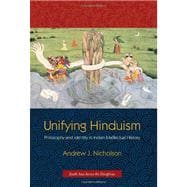
Note: Supplemental materials are not guaranteed with Rental or Used book purchases.
Purchase Benefits
What is included with this book?
| Acknowledgments | p. ix |
| List of Abbreviations | p. xi |
| Introduction | p. 1 |
| Contesting the Unity of Hinduism | p. 1 |
| Vijñanabhiksu and His Late Medieval Milieu | p. 6 |
| Doxography and Method | p. 9 |
| Premodern Philosophy in a Postcolonial World | p. 14 |
| An Alternative History of Vedanta | p. 24 |
| Vedanta and Orientalist Historiography | p. 24 |
| Early Bhedabheda Vedanta | p. 26 |
| Bhedabheda Vedanta After Sankara | p. 30 |
| The Future of Bhedabheda Vedanta | p. 37 |
| Vijñanabhiksu's "Difference and Non-Difference" Vedanta | p. 39 |
| The Meaning of "Bhedabheda" | p. 39 |
| Self and Brahman as Part and Whole | p. 50 |
| Brahman's Causality in Advaita and Bhedabheda Vedanta | p. 56 |
| Bhedabheda and the Unity of Philosophies | p. 65 |
| A History of God in Samkhya and Yoga | p. 67 |
| Samkhya: An Atheist Philosophy? | p. 67 |
| Theism in Early Samkhya and the Puranas | p. 69 |
| Atheism and Theism in "Classical" Samkhya | p. 76 |
| Samkhya and Yoga | p. 79 |
| Reading Against the Grain of the Samkhyasutras | p. 84 |
| Atheism in the Samkhyasutras | p. 84 |
| Kapila's "Bold Assertion" as Speech Act | p. 90 |
| Degrees of Deception in Samkhya and the Puranas | p. 96 |
| Disproving God in the Samkhyasutras | p. 100 |
| Yoga, Praxis, and Liberation | p. 108 |
| The Excellence of the Yogic Path | p. 108 |
| Karma and Embodied Liberation | p. 114 |
| The Unity of Yoga and Vedanta Soteriologies | p. 118 |
| Vedanta and Samkhya in the Orientalist Imagination | p. 124 |
| Indian Philosophy and the Critique of Orientalism | p. 124 |
| Colebrooke and Gough: The Struggle for the Essence of Vedanta | p. 128 |
| Paul Deussen and the Influence of German Idealism | p. 133 |
| Richard Garbe: Samkhya as the Foundation of Indian Philosophy | p. 138 |
| Orientalism and Modern Hindu Thought | p. 142 |
| Doxography, Classificatory Schemes, and Contested Histories | p. 144 |
| Doxography as a Genre | p. 144 |
| Early Models for Doxography in India: Cattanar and Bhaviveka | p. 148 |
| Haribhadra, Jainism, and the Six Systems | p. 154 |
| Madhava and the Influence of Advaita Doxography | p. 158 |
| Madhusudana Sarasvati: Foreignness and the Philosophical Other | p. 163 |
| Affirmers (Astikas) and Deniers (Nastikas) In Indian History | p. 166 |
| Toward a Comparative Heresiology | p. 166 |
| The Meaning of Astika and Nastika | p. 168 |
| Perspectives from the Jainas, Buddhists, and Grammarians | p. 172 |
| Beyond Orthodoxy and Heterodoxy | p. 176 |
| astika and Nastika in the Late Medieval Period | p. 179 |
| Hindu Unity and the Non-Hindu Other | p. 185 |
| Inclusivism and Hindu Toleration | p. 185 |
| Decoding Late Medieval Doxography | p. 190 |
| The Absence of Islam | p. 192 |
| Hinduism: A Modern Invention? | p. 196 |
| Communalism, Universalism, and Hindu Identity | p. 201 |
| Notes | p. 207 |
| Bibliography | p. 239 |
| Index | p. 251 |
| Table of Contents provided by Ingram. All Rights Reserved. |
The New copy of this book will include any supplemental materials advertised. Please check the title of the book to determine if it should include any access cards, study guides, lab manuals, CDs, etc.
The Used, Rental and eBook copies of this book are not guaranteed to include any supplemental materials. Typically, only the book itself is included. This is true even if the title states it includes any access cards, study guides, lab manuals, CDs, etc.
Read the Introduction (pdf).